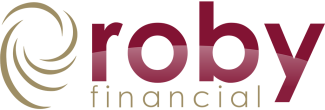
How to Boost Your Financial Literacy: 5 Simple Tips for Success
Many of us have experienced the cost of financial literacy gaps at one point or another. And if you’re like most folks, the gaps in your financial literacy probably cost you at least $500 last year alone.1
Think of it as a type of financial illiteracy tax. However, there is good news: you do NOT have to keep paying it year after year.
The more you brush up on your financial knowledge, the better you’ll be at making more informed choices with your money and staying on track with your financial goals.
So, how do you do that?
It doesn’t have to be a major challenge, especially with these tips for improving financial literacy.
5 Painless Ways to Improve Financial Literacy
Financial literacy is about personal finance, budgeting, savings, investing, debt, and more. Whatever you know — or don’t know— about it now, here are some tips for building up your financial knowledge.
Tip #1: Commit time to financial literacy.
Daily or weekly, set aside some time to focus on personal finance. Better yet:
- Choose a day and time you can stick to: When do you have downtime in your schedule? When are you commuting, exercising, or waiting around? Think about how you could use those (or other times) as opportunities to beef up your financial knowledge. Even just 5 or 10 minutes can be enough to get started.
- Fold it into your current routine: Committing time to learn about finance is sort of like creating a new good habit. And a powerful way to do that is by habit stacking or connecting a new habit to an existing one. For example, if you drink a cup of coffee every morning before you go to work, habit stacking could involve adding a new activity, like reading financial news while you drink your coffee.2
Tip #2: Be a sponge for financial information.
Read up on finance with books, articles, magazines, newsletters, and other written materials. Look for content that’s:
- Conversational: Finance can get complicated, but the language we use to discuss it doesn’t have to be. So, scout out materials with accessible, plain language.
- Somewhat piecemeal: Bite-size material can be more welcoming and less intimidating to dive into and tackle. So, look for resources that will let you dip in and out at your convenience, like chaptered books, serialized articles, or otherwise encapsulated content.
- Focused on your knowledge gaps: Take a financial literacy quiz to see what you don’t know and where to focus your attention. Bonds and interest rates are good places to start because many folks aren’t too familiar with how those work.3
Along with reading, you can also:
- Listen to financial podcasts, news, and/or TED Talks.
- Watch videos on financial topics.
Tip #3: Take a class or a workshop.
Sign up for a financial course or workshop online or in person. There are tons of free and paid options out there that are specifically geared toward:
- The fundamentals of personal finance: Great for beginners, the basics of personal finance can also be smart to revisit from time to time, particularly when teaching children or grandchildren about money.
- More advanced topics: This could include anything from developing new financial skills to understanding niche aspects of finance, refining money mindsets, and more.
Remember, as long as you’re handling money, it’s never too early or too late to take a course or try out any of these tips for improving your financial literacy.
Tip #4: Join a financial literacy group.
There’s no shortage of social media groups, forums, and other groups dedicated to financial education and learning. That can give you a ready-made support group with access to tons of knowledge and resources. It can also help you stay:
- Accountable: A group of like-minded folks can check in, listen, and keep you on track. That connection can create real accountability, quieting the excuses and distractions that interfere with progress.
- Motivated: Learn from others’ mistakes, get helpful advice, and hear inspiring stories as part of a group. All of that can be incredibly motivating. It may even help you connect with potential mentors.
Tip #5: Talk to a financial professional.
Meet with a financial professional to get one-on-one advice and answers tailored to your needs, concerns, and objectives. You don’t know what you don’t know — and life can get busy, stressful, and complicated, no matter how much you plan for the future.
Still, you don’t have to forge ahead in your financial life alone. Financial professionals can offer essential support, education, and guidance, especially in uncertain times or when you’re at a significant financial crossroads. They can also help you improve your financial literacy.
With that, you may get more than just a better grip on your finances. You could also level up your financial capabilities in the short and long term.
Sources:
- https://www.cnbc.com/2023/01/19/heres-how-much-people-say-lack-of-financial-literacy-cost-in-2022.html
- https://www.psychologytoday.com/us/blog/flourish-and-thrive/202002/6-powerful-ways-build-new-habits
- https://www.finrafoundation.org/sites/finrafoundation/files/Why-Is-Measured-Financial-Literacy-Declining.pdf

